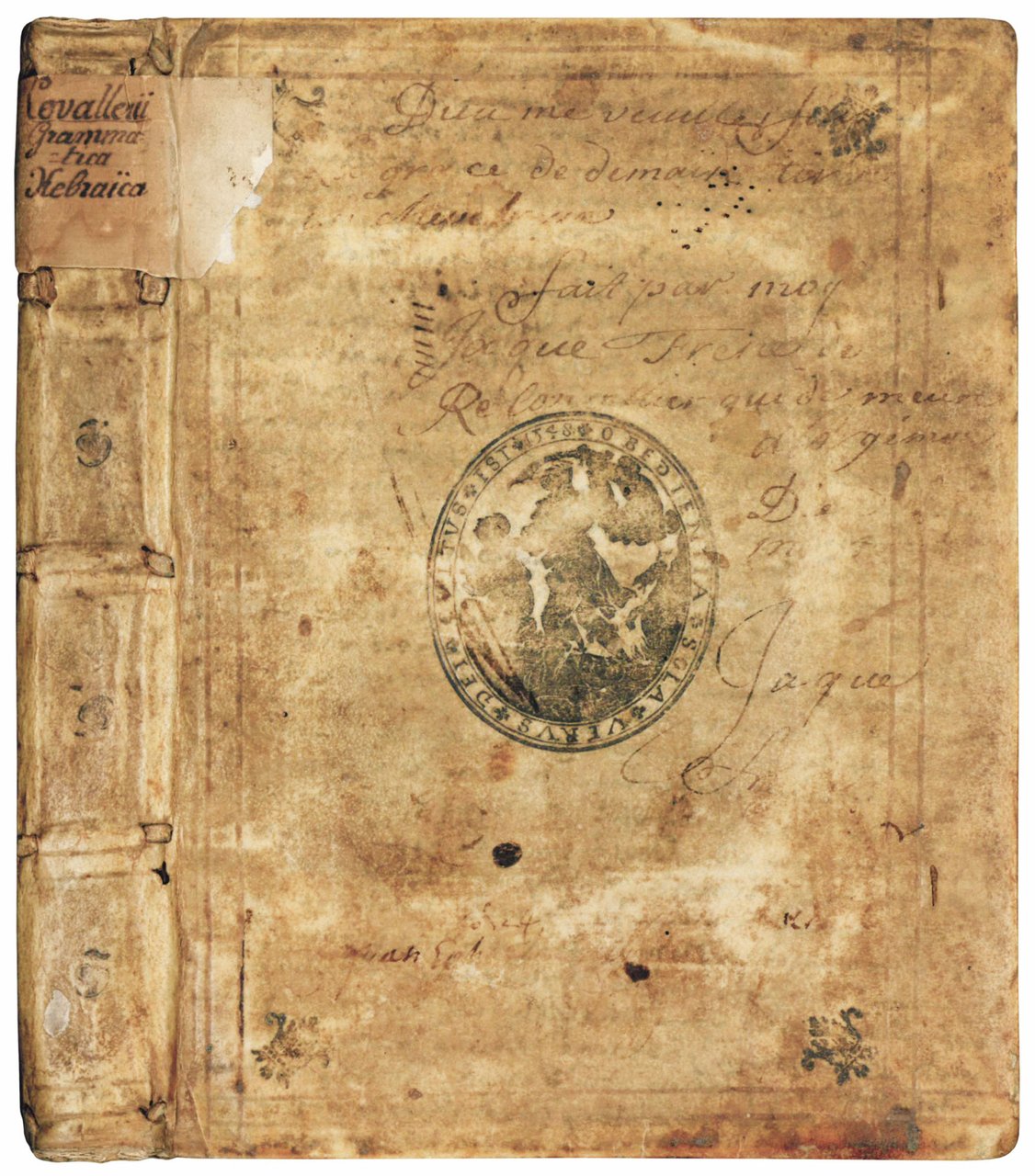
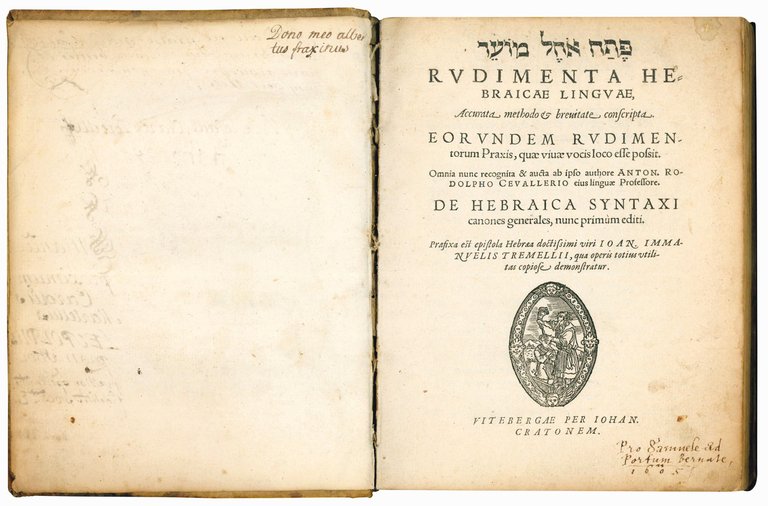
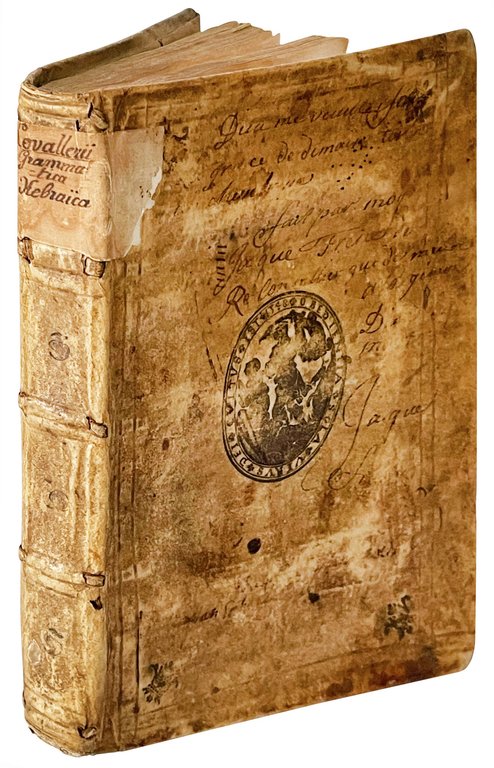
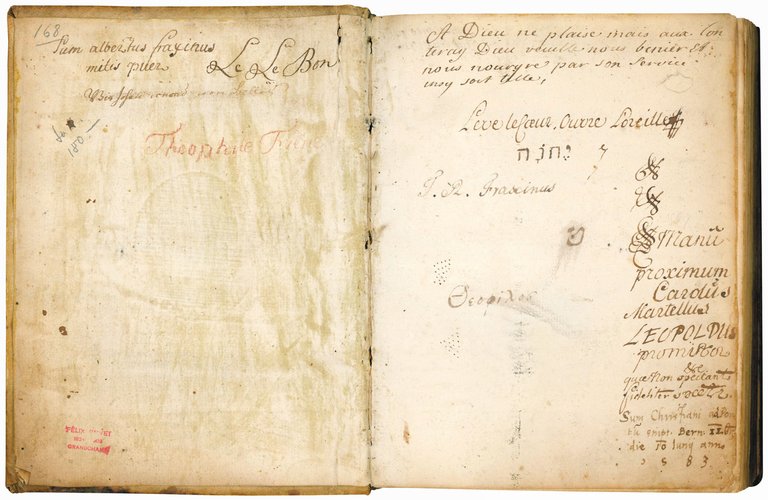
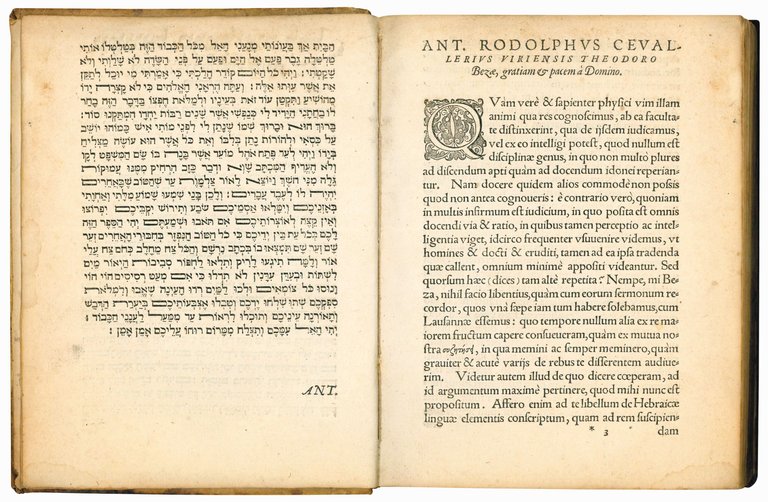
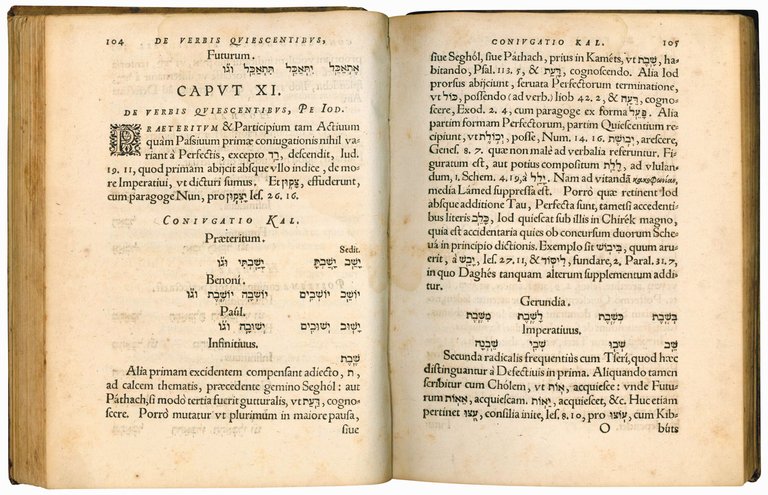
Livres anciens et modernes
CHEVALIER, Antoine-Rodolphe (1507-1572)
Rudimenta Hebraicae linguae, accurata methodo et brevitate conscripta. Eorundem rudimentorum Praxis, quae vivae vocis loco esse possit. Omnia recognita & aucta ab ipso authore Anton. Rodolpho Cevallerio eius linguae Professore. De Hebraica syntaxi canones generales, nunc primùm editi. Prefixa est epistola Hebraea doctissimi viri Ioan. Immanuelis Tremellii, qua operis totius utilitas copiose demonstratur
Johannes Crato (Johann Kraff the Elder), 1574
1200,00 €
Govi Libreria Antiquaria
(Modena, Italie)
Les frais d'expédition corrects sont calculés une fois que l'adresse de livraison a été indiquée lors de la création de la commande. Un ou plusieurs modes de livraison sont disponibles à la discrétion du vendeur : standard, express, economy, in store pick-up.
Conditions d'expédition de la Librairie:
Pour les articles dont le prix est supérieur à 300 euros, il est possible de demander un plan de paiement échelonné à Maremagnum. Le paiement peut être effectué avec Carta del Docente, Carta della cultura giovani e del merito, Public Administration.
Les délais de livraison sont estimés en fonction du temps d'expédition de la librairie et de la livraison par le transporteur. En cas de retenue douanière, des retards de livraison peuvent survenir. Les frais de douane éventuels sont à la charge du destinataire.
Pour plus d'informationsMode de Paiement
- PayPal
- Carte bancaire
- Virement bancaire
-
-
Découvrez comment utiliser
votre Carta del Docente -
Découvrez comment utiliser
votre Carta della cultura giovani e del merito
Détails
Description
Third edition (first Geneva 1560, reprinted in 1567) of this very successful Hebrew grammar that was also reprinted in Freiburg/Breisgau in 1585 and 1605, Geneva in 1590 and in 1592, and Wittenberg in 1591.
Chevalier was born in Montchamps in 1507. While still young, he moved to Paris to study Hebrew under F. Vatable. Due to his Protestant religious zeal, he had to flee to England, where he completed his studies at Oxford with P. Fagius. The Duke of Somerset charged him with teaching French to Princess Elizabeth. Following the Catholic backlash after the death of Edward VI, Chevalier fled to Germany. Initially settling in Heidelberg to study under the Italian Jewish convert Immanuel Tremellius (1510-1580), in 1559 he was invited to Strasbourg to teach Hebrew. Soon after, he moved to Geneva to hold the same position. However, he then decided to return to France. The religious wars forced him to flee again, this time to England, where he was appointed professor of Hebrew at Cambridge. Despite this position and the protection he enjoyed from Queen Elisabeth, in 1570 he returned to France. After the St. Bartholomew's Day massacre, he fled to the island of Guernsey, where he died soon afterwards. Chevalier was a highly respected Hebrew scholar and was admired for his knowledge by eminent figures such as Bèze, Drusius and Scaliger (cf. E. & É. Haag, La France protestante, Paris, 1858, III, pp. 440-441).
VD16, C-2255; Adams, C-1301; index Aureliensis, 136.352.

